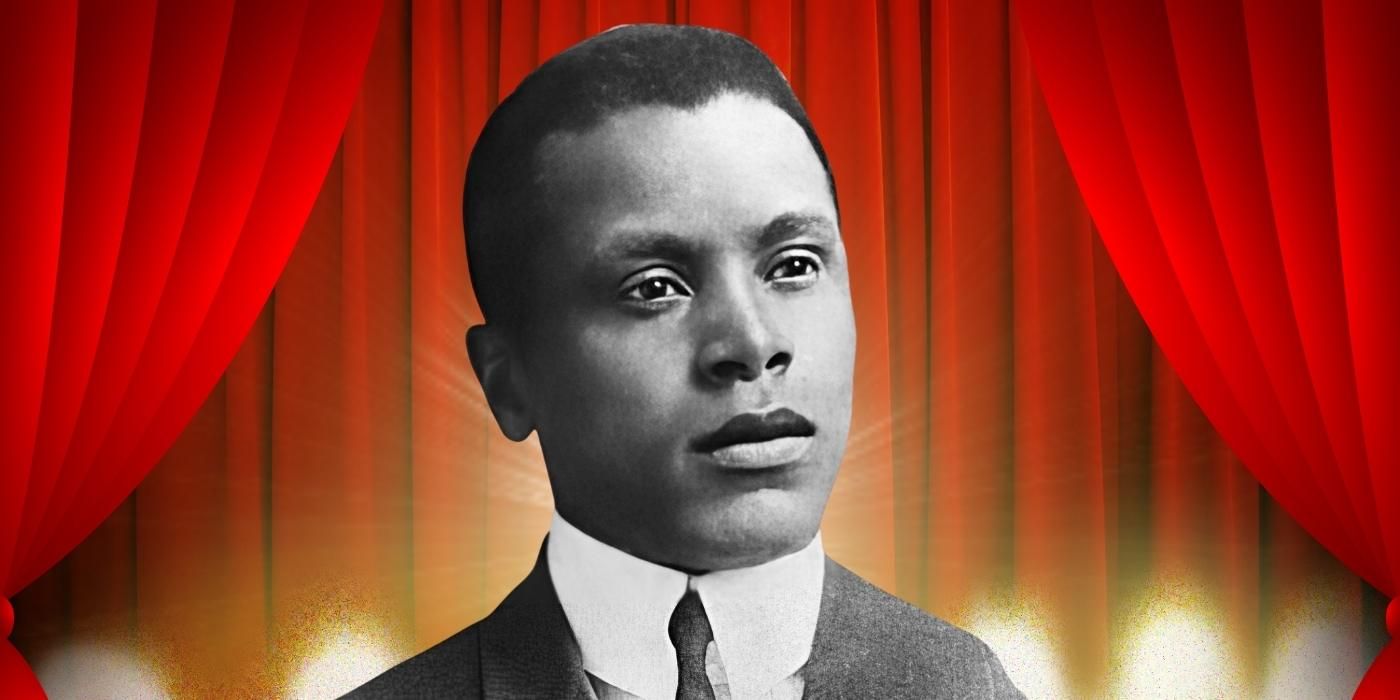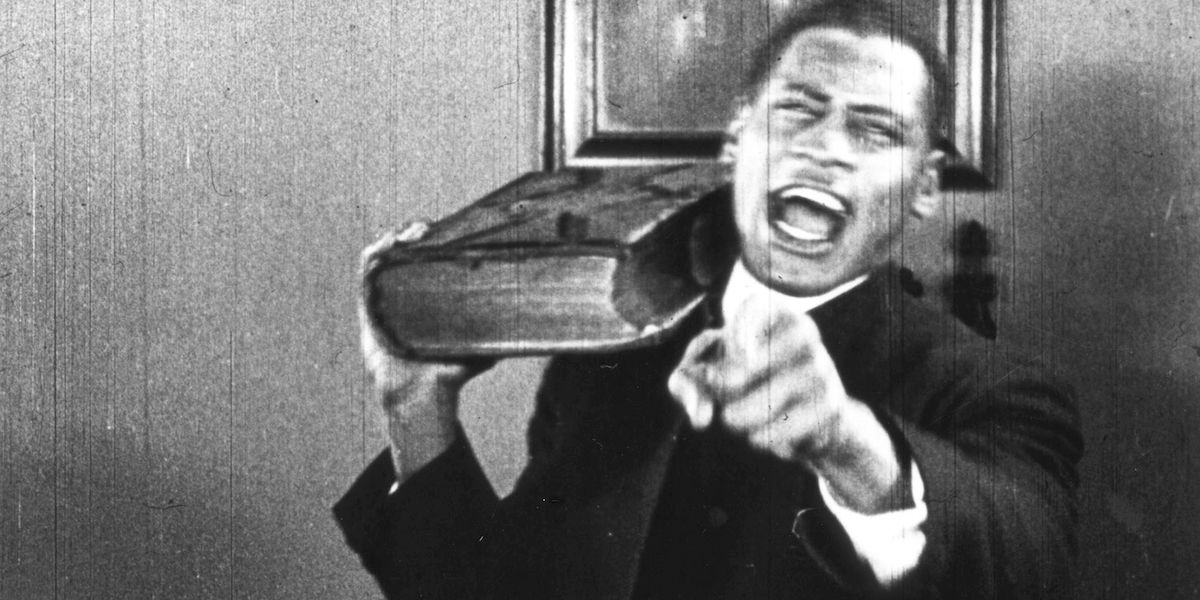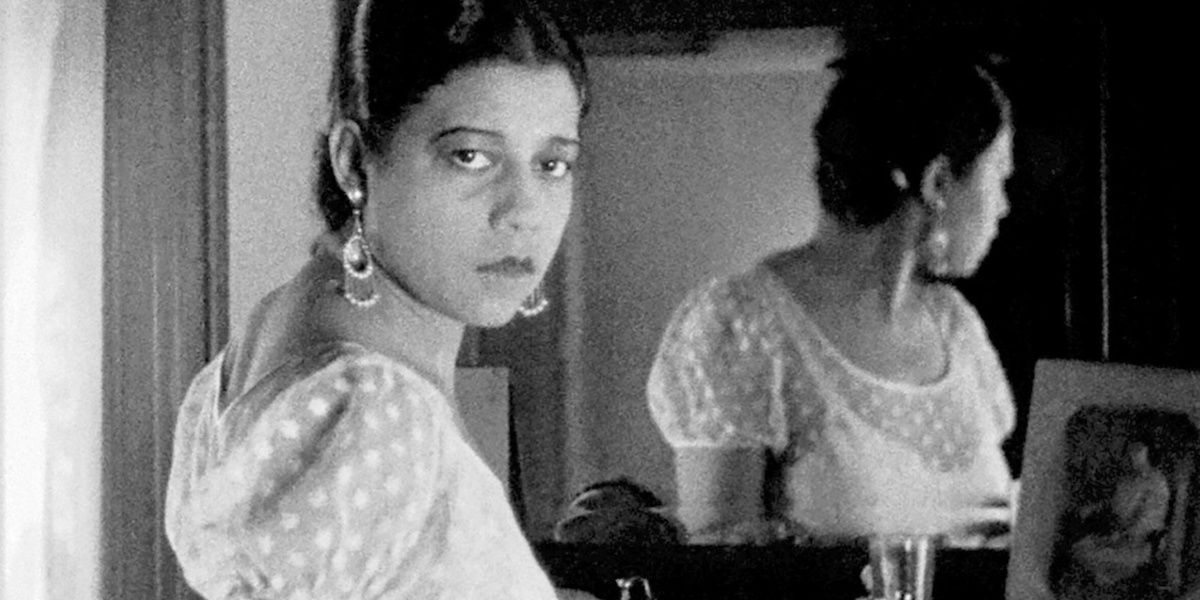Trigger Warning: This article contains discussion of violence and sexual assault.
American cinema has seen, in the past few decades, the success of Black creatives in filmmaking. In the past few years, Hollywood has been blessed with features such as Get Out, Selma, Black Panther, and The Woman King, among other features. These films were created by creatives such as Jordan Peele, Barry Jenkins, Ava DuVernay, and Ryan Coogler, among other filmmakers. This is not to neglect that road that had been paved by folks such as Spike Lee, John Singleton, Gordon Parks, etc. who put their stamp on Hollywood. However, all of these past decades of Black filmmaking wouldn't have existed if a filmmaker by the name of Oscar Micheaux.
How Blackness Was Represented in Early 20th Century Film
In the early twentieth century, imagery of Blackness in film was still steeped with racism and anti-Blackness sentiments. This was still an era where if there was any character of color, it was a white actor in Black face/brownface/yellowface and depicted in deeply offensive and dangerous ways. One has to look no further than at Birth of a Nation, a film that's still considered one of the most important, if not the most important, films in cinema history. This movie heralded for its importance is a film that portrays Black people as either servile objects or beasts out to destroy white civilization. This was a film of which President Woodrow Wilson remarked, “It's like writing history with lightning. My only regret is that it is all so terribly true.” However, Birth of a Nation is sadly not the exception, but rather sets up the rule for representation in the early days of film.
Who Is Oscar Micheaux?
Oscar Micheaux is perhaps one of the earliest, if not the earliest, Black filmmakers in American filmmaking. Over the course of the early half of the 20th century, Micheaux made over forty films that seek to give Black people life and dignity that hadn't been presented on screen. Unfortunately, many of his films, like most silent films have been lost to time with only a handful of films that have survived and could still be seen today. Micheaux was inspired by the philosophy of Booker T. Washington and Black economic self-empowerment and advancement. This philosophy inspired him to go out and buy a homestead in 1904, which influenced his writing of The Conquest. That philosophy seemed to follow him through his filmmaking by having him produce the stories he wants to tell and working independently. Had he gone under the security blanket of a studio at the time (if they agreed to him), then it would've changed the way he made film.
With The Homesteader, Micheaux wrote, directed, and produced this adaptation of his novel The Conquest. However, the most noteable entry in his filmography would be his sophomore attempt — Within Our Gates. Within Our Gates, is perhaps Micheaux's most well-known film. Not only is it his most well-known film, but it was also a response to D.W. Griffith's Birth of a Nation. In it, the film discusses a range of topics from lynching, sexual assault, and white supremacy that sought to talk back to Griffith's view of Blackness.
How Oscar Micheaux Talks Back to D.W. Griffith With 'Within Our Gates'
In Within Our Gates, Sylvia Landry (Evelyn Preer) goes up to the North to get money for a school and later comes to terms with her own family legacy and lineage. This film shows Black characters who seek to uplift themselves and are in occupations such as doctors and ministers — positions that come with a lot of authority and trust as opposed to the Black brutes that Griffith made us believe needed slavery to function. In addition to the positive representation of Black life, we do get a sense of negative Black life, but it comes with those who seek to sell out other Black people. The character of Efrem (E.G. Tatum) who is a servant to the white family of Gridlestone snitches on one of the Landrys, who is falsely accused of killing one of the Gridlestones. Efrem is lynched alongside the Landry family. At this moment in the film, Micheaux talks to the audience which was a real response to the idea that was pushed by Birth of a Nation that was advocating that Black people could only be servile to white people. Micheaux has Efrem still suffer the same fate as the Landrys even though Efrem believed that betraying his race would save him.
One of the most vital scenes and harrowing scenes in the film is a scene of attempted rape. Gridlestone's brother attempts to assault Sylvia in the flashback of what happened to her family. However, he stops when he sees the birthmark that Sylvia has and realizes that Sylvia is his daughter from a relationship he had with a Black woman and becomes horrified with himself. This is perhaps the first film to ever depict and discussed intrasexual sexual assault, where white men are the perpetrators. This actual acknowledgment of the history of assaults done to Black women starting from slavery serves as a corrective to what Birth of a Nation had put forward. One of the most infamous scenes in Birth of a Nation is where a white woman falls off a cliff after being pursued by a Black man who attempts to force himself on her — perpetuating the myth of the Black beast out to violate white feminity. Micheaux shows the reality as opposed to the myth that Griffith attempted to push forward. Within Our Gate's importance to cinema history cannot be overstated. The Library of Congress selected it for preservation in the National Film Registry.
While much of his filmography may be lost, Micheaux's work sought to challenge and revolutionize the film canon. Micheaux was Black man in charge of the narrative and getting to write the definitions of Black life on-screen. Without the presence of Oscar Micheaux behind the camera, there wouldn't be filmmakers like Spike Lee making Do the Right Thing, John Singleton making Boyz N the Hood, or Gina Smith Bythewood making The Woman King. Oscar Micheaux short-lived time as one of the American cinema's first Black auteurs built the house that allowed for Black life to appear more prominently in film.



